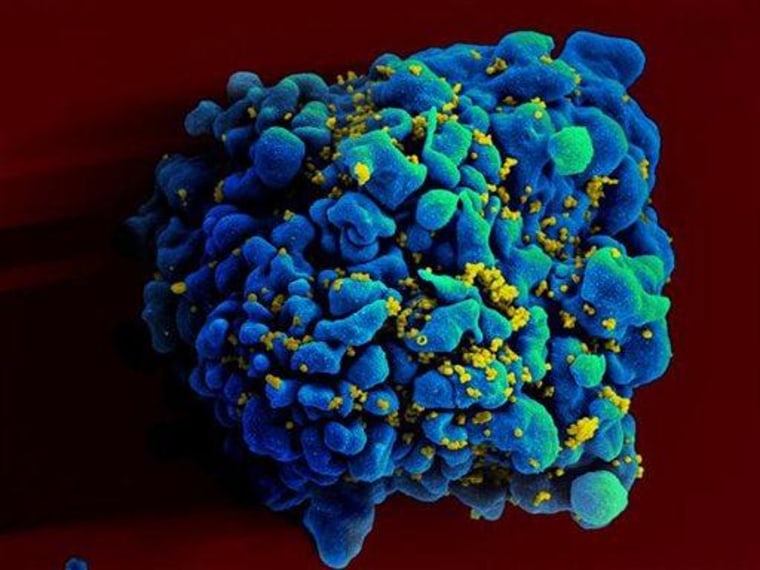An experimental new drug can protect against the AIDS virus for months, offering the possibility of a better way to protect people most likely to become infected, researchers reported Tuesday.
So far the research has only been done in monkeys using a virus similar to HIV — but the experiments are similar to those that led to the development of pills that protect people from the deadly and incurable virus.
The new drug might also offer a good way to treat people with HIV while removing some of the burden of having to take pills every single day.
The drug is so new it’s still only known by its experimental name, GSK744. It’s in a class of drugs called an integrase inhibitor — it stops the human immunodeficiency virus from getting into the immune cells it attacks.
This particular formulation crystallizes and lasts in the blood, releasing slowly over time, says Dr. David Ho of the Aaron Diamond AIDS Research Center in New York, who led the study team. Studies in people show it lasts for up to three months.
“GSK744 has the potential the achieve in preventing HIV infection what a long-acting contraceptive has achieved in preventing unintended pregnancies,” they wrote in their report, published in the journal Science and released at an AIDS conference in Boston.
HIV infects 33 million people globally, including more than a million in the United States. It has killed 25 million people.
Cocktails of powerful drugs can keep people healthy, and the drugs can also protect people from infection and make infected people less likely to pass the virus to others.
Ho says not all HIV drugs lend themselves to long-acting formulations. But it would be useful to try to find more so that patients could be offered more options for treatment. "There would have to be enough of them to enable their use in combination," he told NBC News.
